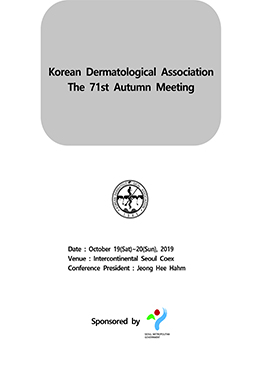Background: EPH B4 and its ligand, Ephrin B2, receptor tyrosine kinases of the erythropoietin-producing hepatocellular (EPH) family, are known to be expressed in several human cancers such as cervical squamous cell carcinoma, endometrial cancer, and melanoma.
Objectives: The aim of this study was to investigate their expression patterns in cutaneous squamous cell carcinoma (CSCC) in association with tumor differentiation and other variable clinical characteristics.
Methods: Immunohistochemical staining for EPH B4 and Ephrin B2 was performed in 33 cases of CSCC with different histologic grades. The clinical characteristics and histologic grades of CSCC were evaluated in association with EPH B4 and Ephrin B2 expression patterns.
Results: EPH B4 and Ephrin B2 expression levels were significantly inversely proportional to the grade of differentiation of CSCC (P = 0.002 and P < 0.001, respectively). There was a significant positive correlation between tumor size and positivity for EPH B4 expression (P = 0.005), but not for Ephrin B2 expression.
Conclusion: These results indicated that EPH B4 and Ephrin B2 can be useful markers for a poorly differentiated CSCC.




